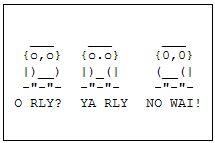Bir süredir paralel ortamda çalışan bir moleküler optimizasyon kodu ile uğraşıyorum. Çoğu şeye sıfırdan başladım, temel sağlam olsun, ileride başka sistemlere de kolayca ayarlayıp aktarabileyim diye (şu anda yazmakta olduğum kod sadece grafit bazlı karbon yapıları konu edinebiliyor). Bu kod yazım sürecinde gerçekten şaşırdığım şeyler oldu ki bunların başında iki sene saçımı başımı yolmama rağmen pek bir şey anlamadığım Polak-Ribiere (Fletcher-Reeves‘i de dahil edebiliriz bittabii ki!) algoritmasını bir gecede hatim eder gibi ÇOT! diye kavramam oldu. Şu anda eldekiler:
1) Bir fonksiyonun minimumunu hesaplayan bir algoritma + kod
2) İş yükünü performansa göre bilgisayarlara dağıtan bir algoritma
3) Bir sistemdeki etkileşimleri bulan, bunları optimal bir şekilde işleme çeviren algoritma + kod
4) Allinger’in MM3 formülasyonuyla sistem enerjisini hesaplayan algoritma + kod
Şekilde görüldüğü üzere, helva yapmak için bütün malzeme var elimizde, inşallah helvayı da birkaç gün içinde yiyeceğiz.. 8)
Kodu standart C++’da yazıyorum. Başta şeytan çok dürtmüştü Visual C++ .NET Framework’de yazmam için ama iyi bir direniş sergiledim. Hatta onun editörünün envai çeşit otomatik-tanımlama lüksünden bile vazgeçip, doğruca VIM’in kollarına bıraktım kendimi. Derleyici olarak da g++ kullanıyorum, “Kod Linux’da da derlenir mi acaba?” derdinden uzak duruyorum.. 8) (koduyorum, çıkıyorum.. 8)
Hamiş Mesajı yazdım, aklıma geldi, bilim dünyasında şöyle bir kötü yönelim var: insanlar sanki makaleleri mümkün olduğunca anlaşılmaz, karışık yazmak için çaba sarfediyorlar. Hal böyle olunca da, seminer veren bir amcanın seminerini dayandırdığı ve bir türlü anlayamadığınız o “ağır” makalesi seminer sırasında “aaa, bu kadar kastırdığı şey bu muymuş!?!” nidanızla ve bir şekilde kazıklandığınız duygusuyla sizi başbaşa bırakıveriyor. Genelde kitaplar makalelerden çok daha açık bir anlatıma sahip ve dahi daha bir user-friendly olsa da, sevgili Elijah Polak’ın 1971 tarihli Computational Methods in Optimization adlı kült kitabı ne yazık ki gereksizce bilgiç takılıyor. Sonuçta bu kitapta hedeflediği şeyin bir Optimizasyon Teorisi kurmak olduğunu söylüyor, yani derdi sizin işinize yarayacak bir kitaptan çok, yeni bir dilin alfabesini ispatlarla temelden kurmak ama temcit pilavı gibi dönüp dolaşıp 3 tane algoritmayı 300 sayfa boyunca önümüze koyması biraz karizmayı çiziyor. 8( Bunun tam tersi bir örnek olarak ise rahatlıkla Peter S. Pacheco’nun Parallel Programming with MPI‘ını verebilirim. Peter Amca anlatacağı şeyleri o kadar doğallıkla ve sevecenlikle sunuyor ki! Hastası olduğum Michael Morrison’ın Understanding Quantum Physics : A User’s Manual‘ından sonra roman gibi bir solukta okuduğum ikinci fizik/bilim/lala kitabı..
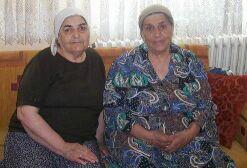 Bir aksilik olmaz ise bu gece buradan yola çıkıp, yarın sabah İzmir’e ayak basıyorum. İzmir’e daha evvel 1998 yılıydı galiba, teknik gezide gitmişliğim vardı. Hep “Ankara ile İstanbul’un en iyi yönlerine sahip ikisinden de güzel..” diye diye beklentilerimi yükselttiklerinden midir, bilinmez, ne yazık ki hiç beğenememiştim. Hatta etrafa en güzel yerini sorup Karşıyaka cevabını alınca orayı da denemiştik ama olmadı işte. Zevk meselesi sonuçta. Bu seferki gidişimdeki maksat, uzun zamandır görmediğim çok sevdiğim Hanife Yengemi görebilmek. Hanife Yengem, anneannemin merhum kardeşi Murat Dayımın eşi. Murat Dayım ben 12-13 yaşlarındayken vefat etti. ..
Bir aksilik olmaz ise bu gece buradan yola çıkıp, yarın sabah İzmir’e ayak basıyorum. İzmir’e daha evvel 1998 yılıydı galiba, teknik gezide gitmişliğim vardı. Hep “Ankara ile İstanbul’un en iyi yönlerine sahip ikisinden de güzel..” diye diye beklentilerimi yükselttiklerinden midir, bilinmez, ne yazık ki hiç beğenememiştim. Hatta etrafa en güzel yerini sorup Karşıyaka cevabını alınca orayı da denemiştik ama olmadı işte. Zevk meselesi sonuçta. Bu seferki gidişimdeki maksat, uzun zamandır görmediğim çok sevdiğim Hanife Yengemi görebilmek. Hanife Yengem, anneannemin merhum kardeşi Murat Dayımın eşi. Murat Dayım ben 12-13 yaşlarındayken vefat etti. ..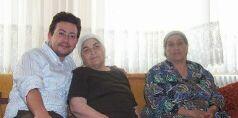 Masmavi gözleri, çok güzel bir sesi vardı, onunla ilgili hatırladıklarım hep kesik kesik ama bir ikindi vakti güneşinde, hep çocuk neşesiyle dolu… Allah rahmet eylesin. Hanife Yengem ile sık görüşemesek de, çok severiz birbirimizi, bir gidip hatrını sorayım istedim, son zamanlarda ne yazık ki sağlığı biraz bozulmuş
Masmavi gözleri, çok güzel bir sesi vardı, onunla ilgili hatırladıklarım hep kesik kesik ama bir ikindi vakti güneşinde, hep çocuk neşesiyle dolu… Allah rahmet eylesin. Hanife Yengem ile sık görüşemesek de, çok severiz birbirimizi, bir gidip hatrını sorayım istedim, son zamanlarda ne yazık ki sağlığı biraz bozulmuş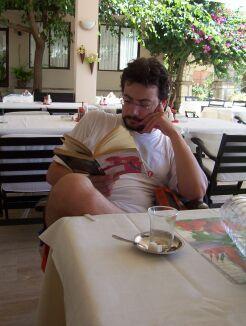 Bugün, tatilde Side’de okumaya başladığım Raymond Carver’ın Will You Please Be Quiet, Please?‘ini bitirdim. Raymond Carver, O. Henry ve Roald Dahl ile birlikte, hikayelerini okumaktan epey hoşlandığım bir yazar (O kadar çok hikayelerini okumamış olsam da). Beni gençliğimde Aşktan Söz Ettiğimizde Sözünü Ettiklerimiz ile vurmuştu yerden yere… Zaten onun edebiyatta yaptığı şeyi
Bugün, tatilde Side’de okumaya başladığım Raymond Carver’ın Will You Please Be Quiet, Please?‘ini bitirdim. Raymond Carver, O. Henry ve Roald Dahl ile birlikte, hikayelerini okumaktan epey hoşlandığım bir yazar (O kadar çok hikayelerini okumamış olsam da). Beni gençliğimde Aşktan Söz Ettiğimizde Sözünü Ettiklerimiz ile vurmuştu yerden yere… Zaten onun edebiyatta yaptığı şeyi 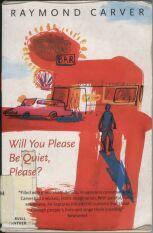 […]He came at last to his house, porch light on, windows dark. He crossed the lawn and went around to the back. He turned the knob, and the door opened quietly and the house was quiet. There was the tall stool beside the draining board. There was the table where they had sat. He had gotten up from the couch, come into the kitchen, sat down. What more had he done? He had done nothing more. He looked at the clock over the stove. He could see into the dining room, the table with the lace cloth, the heavy glass centerpiece of red flamingos, their wings opened, the draperies beyond the table open. Had she stood at that window watching for him? He stepped onto the living-room carpet. Her coat was thrown over the couch, and in the pale light he could make out a large ashtray full of her cork cigarette ends. He noticed the phone directory open on the coffee table as he went by. He stopped at the partially open door to their bedroom. Everything seemed to him open. For an instant he resisted the wish to look in at her, and then with his finger he pushed the door open a little bit more. She was sleeping, her head off the pillow, turned toward the wall, her hair black against the sheet, the covers bunched around her shoulders, coven pulled up from the foot of the bed. She was on her side, her secret body angled at the hips. He stared. What, after all, should he do? Take his things and leave? Go to a hotel? Make certain arrangements? How should a man act, given these circumstances? He understood things had been done. He did not understand what things now were to be done. The house was very quiet.
[…]He came at last to his house, porch light on, windows dark. He crossed the lawn and went around to the back. He turned the knob, and the door opened quietly and the house was quiet. There was the tall stool beside the draining board. There was the table where they had sat. He had gotten up from the couch, come into the kitchen, sat down. What more had he done? He had done nothing more. He looked at the clock over the stove. He could see into the dining room, the table with the lace cloth, the heavy glass centerpiece of red flamingos, their wings opened, the draperies beyond the table open. Had she stood at that window watching for him? He stepped onto the living-room carpet. Her coat was thrown over the couch, and in the pale light he could make out a large ashtray full of her cork cigarette ends. He noticed the phone directory open on the coffee table as he went by. He stopped at the partially open door to their bedroom. Everything seemed to him open. For an instant he resisted the wish to look in at her, and then with his finger he pushed the door open a little bit more. She was sleeping, her head off the pillow, turned toward the wall, her hair black against the sheet, the covers bunched around her shoulders, coven pulled up from the foot of the bed. She was on her side, her secret body angled at the hips. He stared. What, after all, should he do? Take his things and leave? Go to a hotel? Make certain arrangements? How should a man act, given these circumstances? He understood things had been done. He did not understand what things now were to be done. The house was very quiet.
